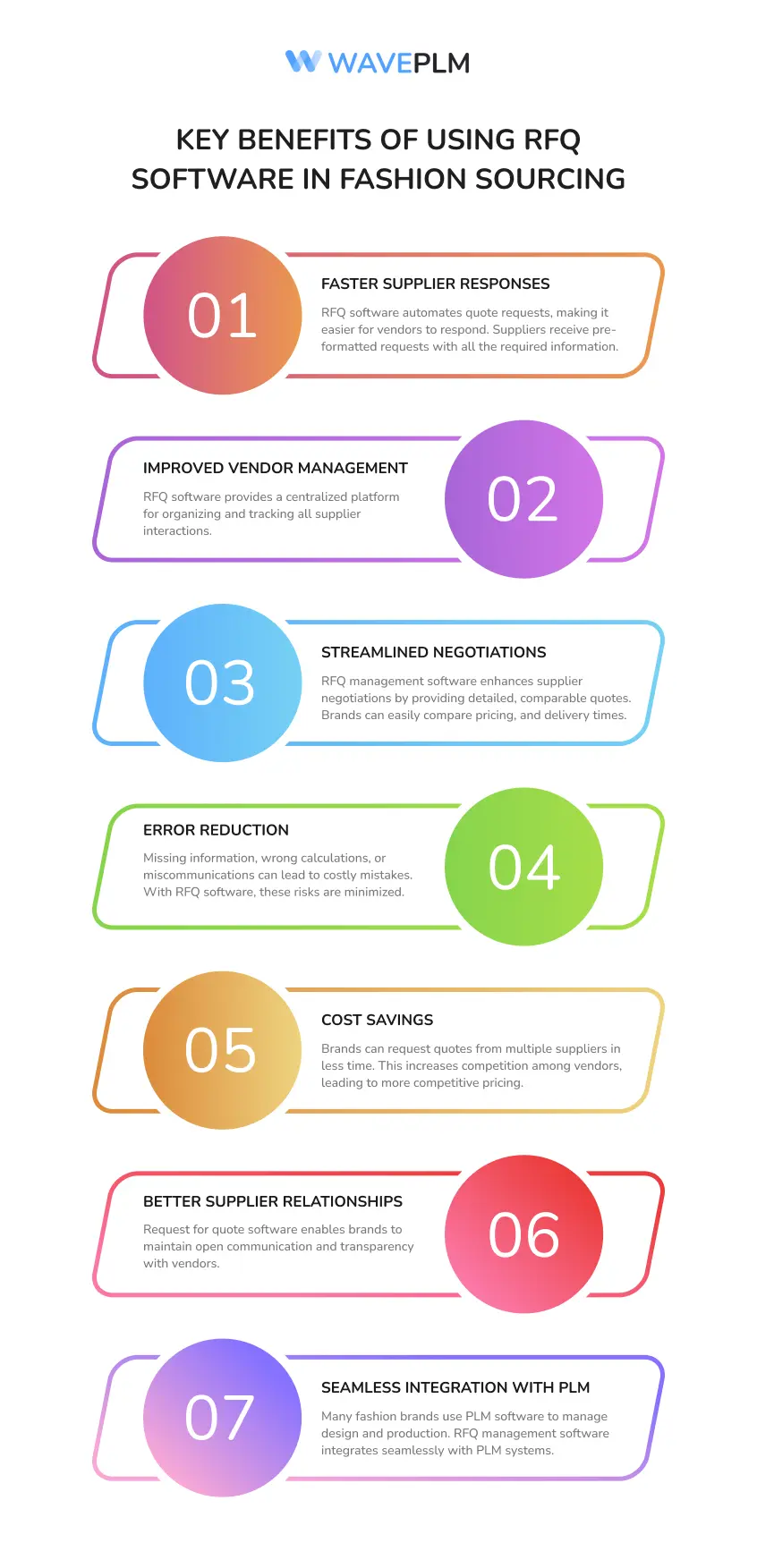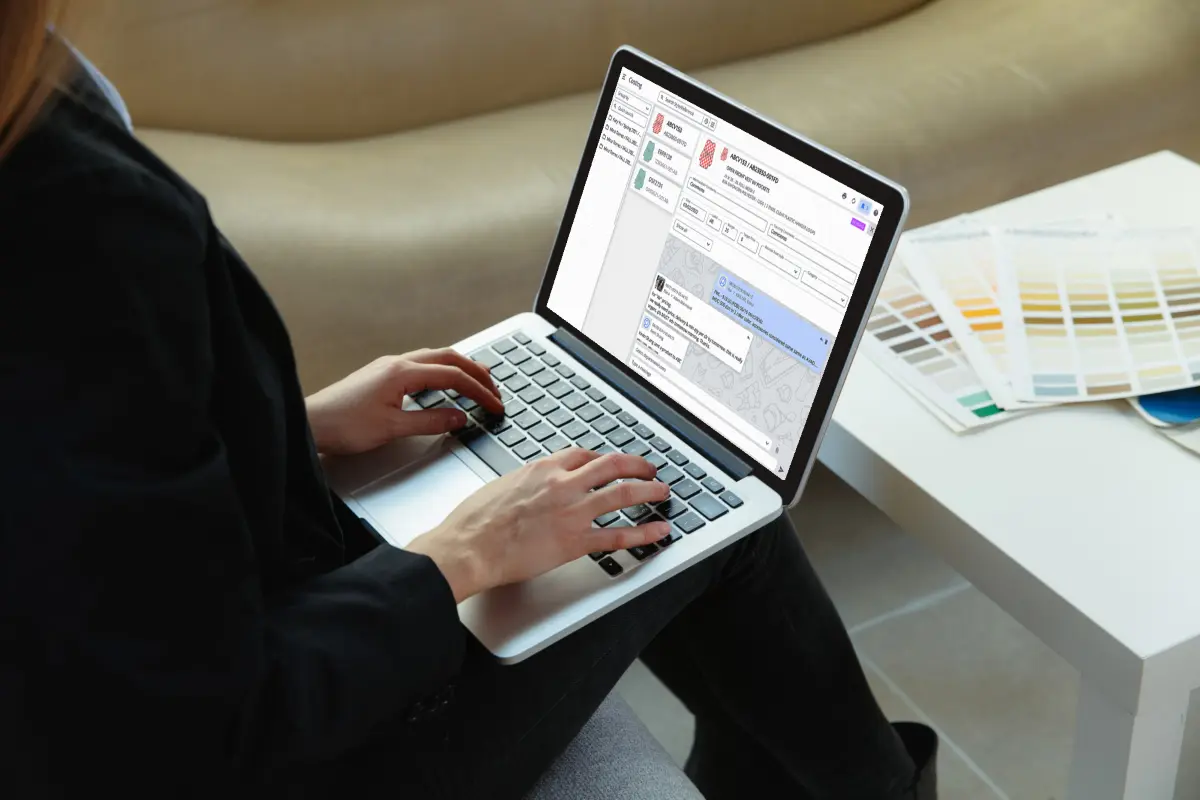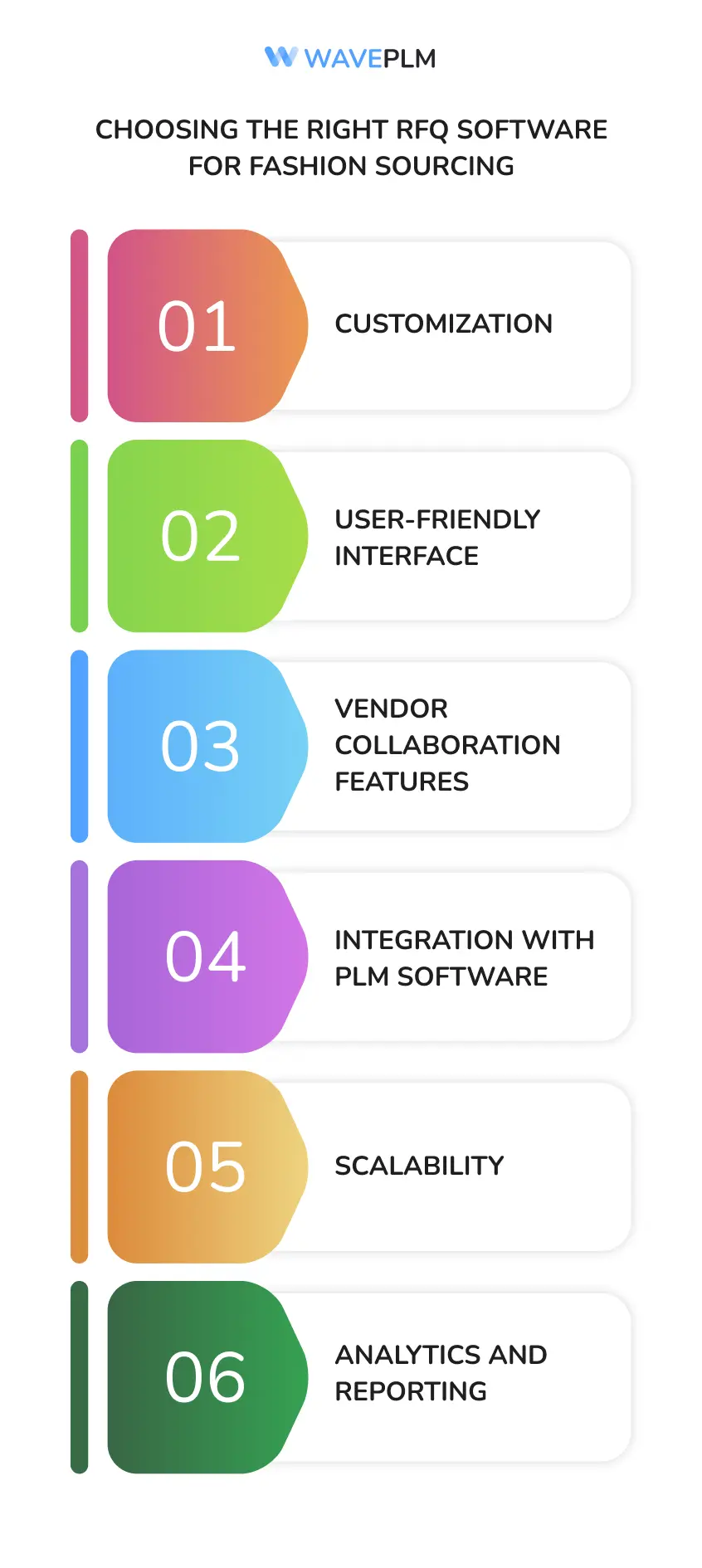
Fashion sourcing is a crucial part of the supply chain. It involves finding and negotiating with suppliers to produce garments or materials. For fashion brands, streamlining this process is essential for success. One key tool for improving sourcing efficiency is Request for Quote (RFQ) software.
RFQ software helps fashion brands request quotes from multiple vendors. This software makes the entire process faster, more accurate, and easier to manage. By automating RFQ management, brands can save time, cut costs, and improve supplier negotiations. Let’s explore how RFQ tools works and its benefits for fashion sourcing.
What is Request for Quote (RFQ) Software?
Request for Quote software is a digital tool that simplifies the process of asking suppliers for pricing on products or services. When fashion brands need to source fabrics, trims, or other materials, they send an RFQ to potential vendors. Vendors then respond with pricing, delivery timelines, and other key details.
Traditionally, managing RFQs required manually sending emails and tracking responses. This method was time-consuming and prone to errors. With such fashion solutions as RFQ management software, brands can streamline the entire process.
The software automates the process of sending, receiving, and comparing vendor quotes. Instead of managing each request individually, brands can handle multiple quotes simultaneously. This allows them to compare offers faster and make better decisions.
Some fashion Product Lifecycle Management (PLM) software, like Wave PLM, already includes built-in RFQ tools. This integration allows brands to collaborate on all processes in one place. With RFQ tools embedded in the PLM system, brands can manage sourcing, design, and production without switching between platforms.
Key Benefits of Using RFQ Software in Fashion Sourcing
Request for quote software provides many advantages to fashion brands looking to improve their sourcing processes. Below are the key benefits:
1. Faster Supplier Responses
RFQ software automates quote requests, making it easier for vendors to respond. Suppliers receive pre-formatted requests with all the required information. This reduces the back-and-forth communication that often delays responses.
2. Improved Vendor Management
Managing multiple vendors can be overwhelming. RFQ software provides a centralized platform for organizing and tracking all supplier interactions. Fashion brands can monitor vendor performance, response times, and pricing trends over time.
3. Streamlined Negotiations
RFQ management software enhances supplier negotiations by providing detailed, comparable quotes. Brands can easily compare pricing, delivery times, and other factors across vendors. This data gives them the leverage needed to negotiate better deals.
4. Error Reduction
Manual RFQ processes often involve human errors. Missing information, wrong calculations, or miscommunications can lead to costly mistakes. With RFQ software, these risks are minimized. The software ensures that all necessary details are included and calculations are accurate.
5. Cost Savings
One of the primary goals of fashion sourcing is to reduce costs. By automating the RFQ process, brands can request quotes from multiple suppliers in less time. This increases competition among vendors, leading to more competitive pricing. Over time, this can result in significant cost savings.
6. Better Supplier Relationships
Building strong relationships with suppliers is key to long-term success in fashion sourcing. Request for quote software enables brands to maintain open communication and transparency with vendors. The software keeps all parties informed, leading to smoother collaborations and more reliable partnerships.
7. Seamless Integration with PLM Software
Many fashion brands use Product Lifecycle Management (PLM) software to manage design and production. RFQ management software integrates seamlessly with PLM systems. This allows brands to keep track of sourcing data alongside design and production information. The result is a more cohesive and efficient supply chain management.
With platforms like Wave PLM, fashion brands have all their sourcing, RFQ management, and production tools in one system. This unified approach enhances collaboration across teams and suppliers, improving efficiency.

How RFQ Software Simplifies Fashion Sourcing
Fashion sourcing is complex, involving multiple steps from design to delivery. RFQ software simplifies each stage, making it easier to find, evaluate, and select the right suppliers.
1. Simplifying Vendor Selection
RFQ software provides fashion brands with a clear overview of potential suppliers. Instead of relying on guesswork, brands can quickly evaluate vendors based on pricing, availability, and delivery times. The software compiles this information into easy-to-read reports, helping brands make informed decisions.
2. Centralizing Sourcing Data
All RFQ-related data is stored in one place. This makes it easy for procurement team members to access previous quotes, supplier performance history, and communication records. By having all the data centralized, brands can avoid miscommunications and ensure a smooth sourcing process.
3. Tracking Supplier Performance
RFQ software tracks key performance indicators (KPIs) for each vendor. This includes response times, delivery accuracy, and pricing competitiveness. Brands can use this data to identify top-performing suppliers and weed out underperformers.
4. Reducing Lead Times
Fashion sourcing often faces tight deadlines. RFQ software speeds up the sourcing process by automating many time-consuming tasks. Faster supplier responses lead to reduced lead times and help brands meet production deadlines more efficiently.
With RFQ tools integrated into systems like Wave PLM, brands can manage these business processes seamlessly. They can collaborate with suppliers, track performance, and reduce sourcing lead times without leaving their PLM environment.

Choosing the Right RFQ Software for Fashion Sourcing
Not all RFQ management software is the same. When selecting the right tool for your fashion brand, consider the following factors:
1. Customization
Your brand has unique sourcing needs. The best RFQ software should be customizable to match your specific requirements. Look for software that allows you to tailor templates, workflows, and reports.
2. User-Friendly Interface
RFQ software should make your job easier, not harder. Choose a tool with an intuitive interface that allows you to send, receive, and track quotes without unnecessary complexity.
3. Vendor Collaboration Features
Collaboration is key in fashion sourcing. Look for RFQ software that offers robust collaboration tools, such as messaging systems or shared dashboards. This helps keep everyone on the same page during the sourcing process.
4. Integration with PLM Software
If your brand already uses PLM software, make sure the RFQ software integrates smoothly with it. Seamless integration ensures that your sourcing data is easily accessible alongside other supply chain data.
With integrated systems like Wave PLM, fashion brands can manage both RFQs and other sourcing tasks in one place. This eliminates the need for multiple platforms and makes the entire sourcing process more efficient.
5. Scalability
As your brand grows, your sourcing needs will evolve. Choose RFQ management software that can scale with your business. This ensures that the software will continue to serve your needs as you expand your sourcing efforts.
6. Analytics and Reporting
Data is crucial for making informed sourcing decisions. The best Request for Quote software offers robust analytics and reporting features. This allows you to analyze supplier performance, track sourcing costs, and identify areas for improvement.

Enhancing Supplier Negotiations with Request For Quote Software
Effective supplier negotiations are critical for successful fashion sourcing. RFQ software plays a crucial role in improving negotiation outcomes. Here’s how:
1. Detailed Supplier Comparisons
RFQ management software compiles vendor data into easy-to-read reports. Brands can quickly compare pricing, delivery timelines, and other key factors. This information is vital for negotiating better terms with suppliers.
2. Data-Driven Negotiations
Having data on supplier performance puts fashion brands in a stronger position during negotiations. Brands can reference past performance, delivery accuracy, and pricing trends to justify their requests for better deals.
3. Transparent Communication
RFQ software keeps all communication with suppliers organized and transparent. Both parties have access to the same information, reducing misunderstandings and fostering trust during negotiations.
Conclusion
Request for Quote software is transforming the way fashion brands source materials and manage supplier relationships. By automating the RFQ process, fashion brands can reduce errors, improve efficiency, and secure better deals with vendors. The software also integrates seamlessly with PLM systems, ensuring that sourcing data is easily accessible alongside other supply chain information.
For fashion brands looking to streamline their sourcing processes, RFQ management software is an essential tool. It saves time, reduces costs, and enhances supplier negotiations — helping brands stay competitive in the fast-paced fashion industry. With platforms like Wave PLM offering built-in RFQ tools, fashion brands can manage sourcing, design, and production all in one place. This unified approach leads to greater efficiency and stronger supplier relationships, positioning brands for long-term success.





Leave a Reply